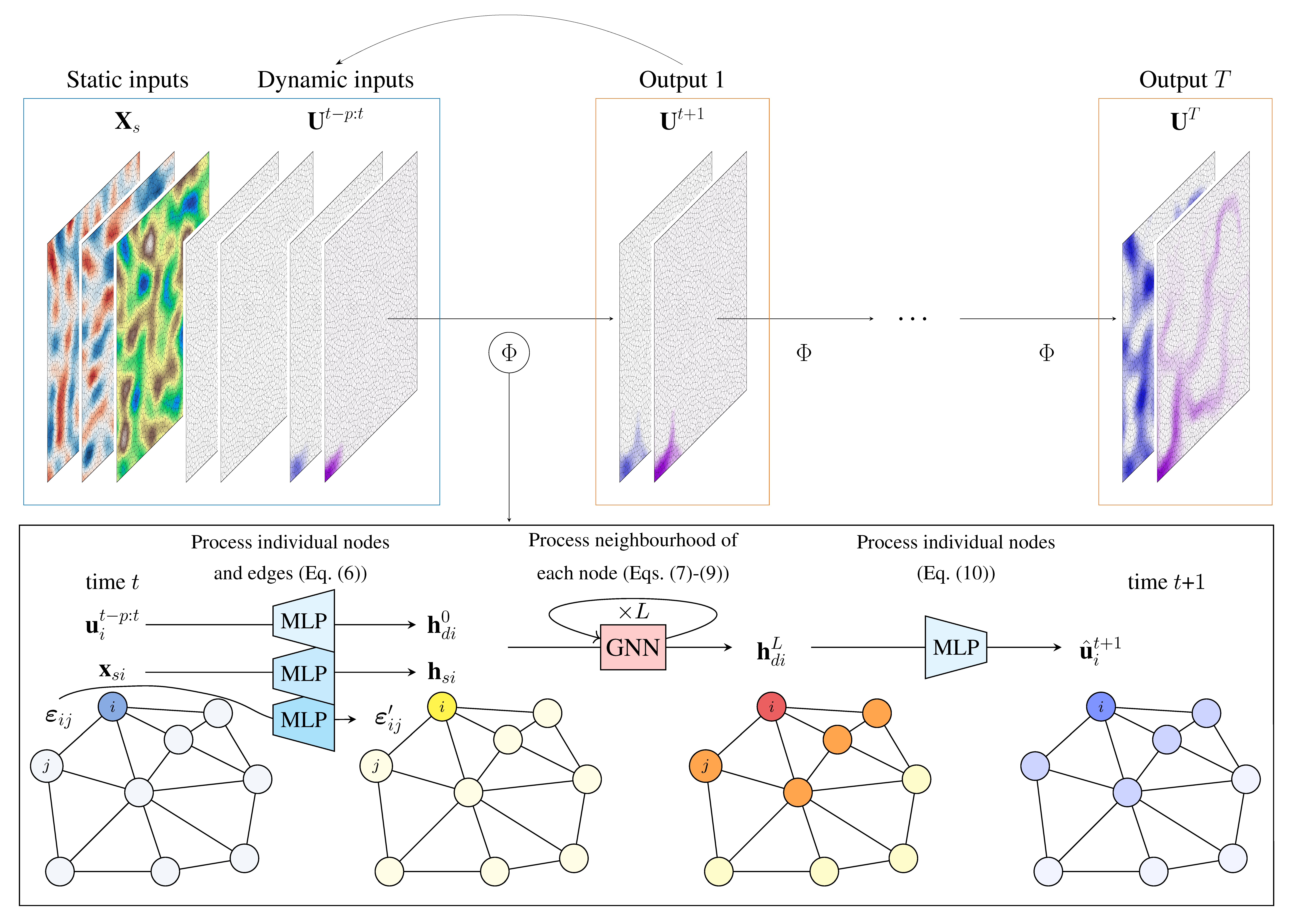Code repository for paper "Rapid Spatio-Temporal Flood Modelling via Hydraulics-Based Graph Neural Networks"
(Version 1.1 (accepted version) - October 23st, 2023)
All test video simulations can be found at https://dx.doi.org/10.5281/zenodo.7652663.
- Download the dataset: https://dx.doi.org/10.5281/zenodo.7764418
wget --no-check-certificate https://zenodo.org/api/records/7764418/files-archive
unzip files-archive
unzip raw_datasets.zip
mv raw_datasets/* database/raw_datasets/
rm files-archive
rm raw_datasets.zip
rm -rf raw_datasets-
Install the required libraries:
pip install -r requirements.txt -
IMPORTANT: Convert the download dataset into pickle files: run create_dataset.ipynb inside the database folder
-
Explore the other notebooks! Try starting with try_model.ipynb
-
For reproducing the paper's results, you can run plot_results.ipynb
-
For training the model
python main.py
The repository is divided in the following folders:
-
database: Creation of hydrodynamic simulations (D-Hydro simulations.ipynb) [requires the license and installation of "D-HYDRO Suite 2023.01 1D2D"] and conversion of the NETCDF output files into PyTorch Geometric-friendly data (create_dataset.ipynb). Also contains the output of the hydrodynamic simulations (raw_datasets: for downloading this dataset go to https://dx.doi.org/10.5281/zenodo.7764418). This is converted into Pickle files that are then stored and separated into training and testing datasets in datasets.
-
models: Deep learning models developed for surrogating the hydraulic one: contains MLP, CNN, and GNNs, as well as a base class with common inputs and functions.
-
results: Contains trained models and respective configuration files, used for the paper's results.
-
training: Contains loss functions, Trainer object, and testing functions.
-
utils: Contains Python functions for loading, creating and scaling the dataset. There are also other miscellaneous functions and visualization functions.
This version of the repository is not very robust to changes in inputs, so be careful to adapt the utils.dataset functions when you want to apply the model to a new dataset! The next version is much more flexible and also works with meshes, but it will be published later on, hehe.
Please cite our paper as:
@Article{hess-27-4227-2023,
AUTHOR = {Bentivoglio, R. and Isufi, E. and Jonkman, S. N. and Taormina, R.},
TITLE = {Rapid spatio-temporal flood modelling via hydraulics-based graph neural networks},
JOURNAL = {Hydrology and Earth System Sciences},
VOLUME = {27},
YEAR = {2023},
NUMBER = {23},
PAGES = {4227--4246},
URL = {https://hess.copernicus.org/articles/27/4227/2023/},
DOI = {10.5194/hess-27-4227-2023}
}
